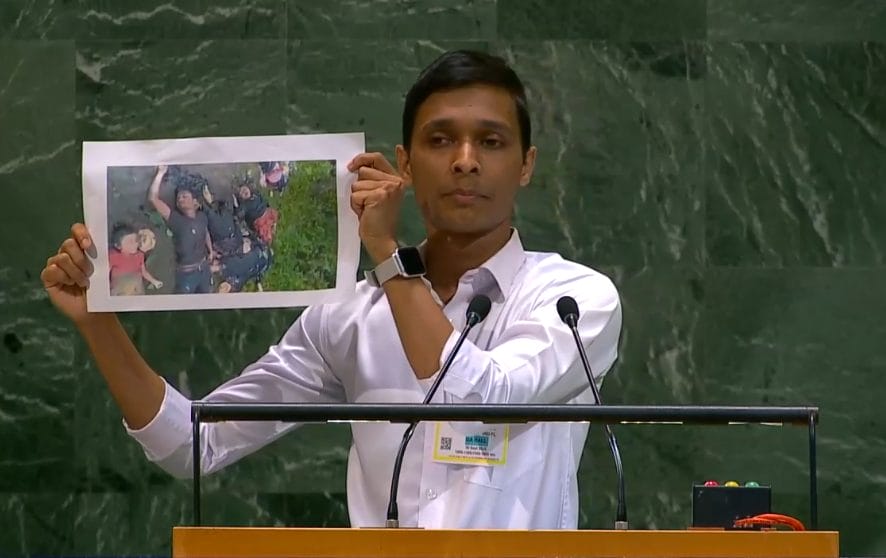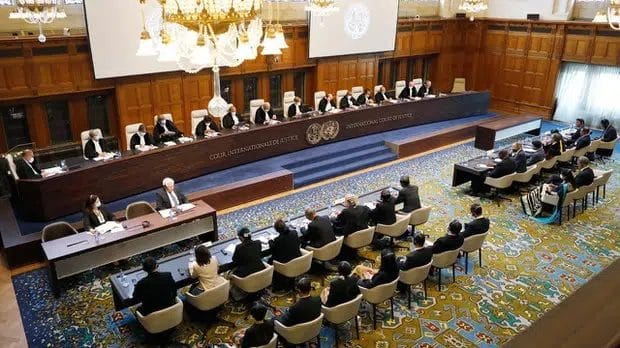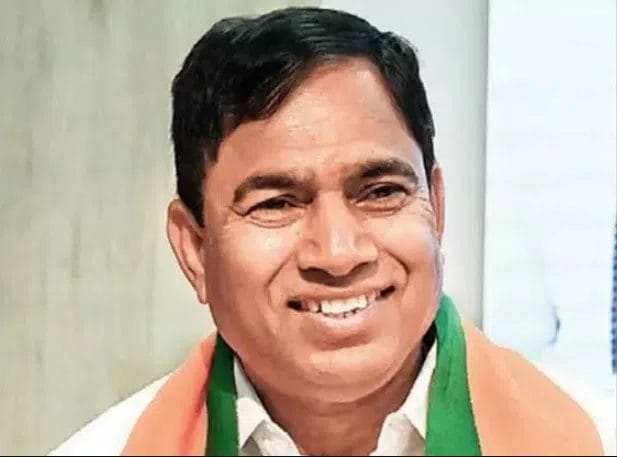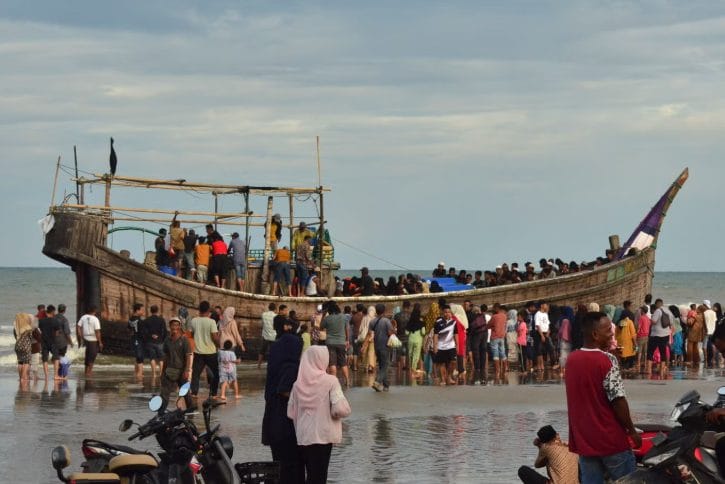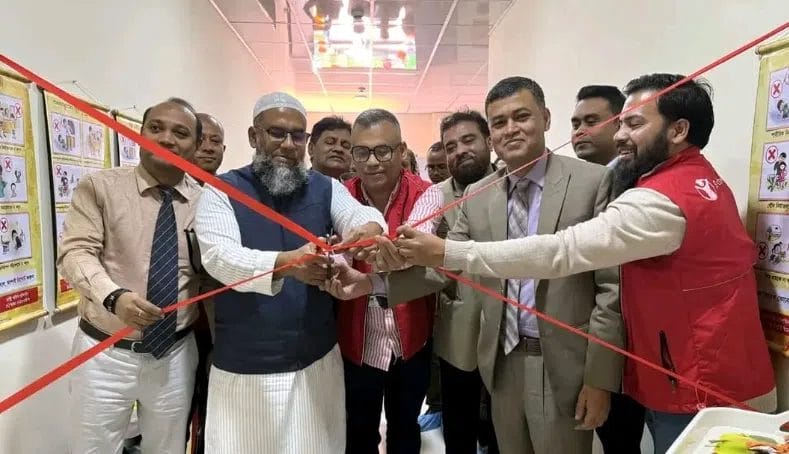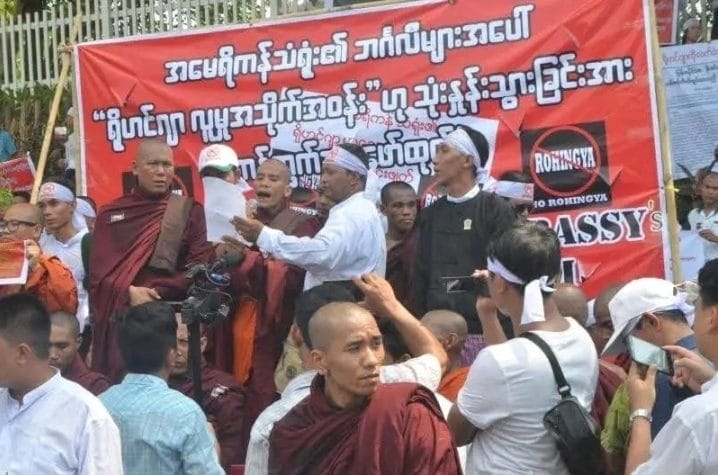Arakan News Agency
The United Nations High-Level Conference on the Rohingya Crisis on Tuesday heard powerful testimonies from Rohingya activists detailing ongoing systematic abuses and human suffering in Arakan State in western Myanmar. The speakers stressed that the genocide against the Rohingya did not end in 2017 and that they continue to be used as human shields amid escalating violence.
Wafiq Hassan, founder of the Arakan Youth Peace Network, said he personally faced systematic discrimination in Myanmar, including being denied higher education because he is Rohingya. He noted that since the 2021 coup, 3.6 million people have been displaced, 1.5 million have become refugees, and 22 million are in need of humanitarian assistance.
He emphasized that the Rohingya are victims of a decades-long, systematic genocide. He pointed out that the latest fighting since 2023 between the Myanmar military and Arakanese Buddhist militias has worsened their suffering, as aid was cut off for about 200,000 Rohingya trapped in camps in Sittwe, whose homes and lands were confiscated, leaving them entirely dependent on humanitarian aid.
Hassan said he witnessed the forced recruitment of Rohingya youth and children, who were used as human shields in the battles in Buthidaung and Rathedaung, where at least 400 people were killed in a single week.
He added that aerial bombardments by the military council, including the use of 500-pound bombs, killed 20 students in Kyauktaw, while militias carried out abuses including arbitrary arrests, torture, and forced recruitment.
He recalled the Buthidaung massacre, which claimed the lives of 600 Rohingya, followed by widespread burning of Rohingya areas and the mass displacement of about 200,000 people in a single day.
Laki Karim, executive director of the Women for Peace and Justice Organization, said she was just 14 years old when she fled Myanmar with her family to Bangladesh in 2017, joining hundreds of thousands of Rohingya in the overcrowded camps of Cox’s Bazar.
“A whole generation has been lost,” she said. “People like me have had no education for the past eight years, and we still rely on UN food assistance.”
She expressed deep concern about the recruitment of Rohingya youth to support the fighting against Arakan militias, stressing that the dire conditions have forced children and women to risk their lives fleeing to countries such as India, Malaysia, and Thailand, where many died on the way and survivors have not been recognized as refugees.
In his remarks, Maung Syed Ullah, founder of the Rohingya Students’ Network, delivered a heartfelt message to his people in Myanmar: “We have not forgotten you. We feel your pain and share your suffering under the brutality of the military council.”
He said that the remaining Rohingya in Arakan State face deadly attacks from Arakan militias, which have committed atrocities worse than those of the Myanmar military. He cited drone attacks on August 5, 2024, that killed more than 200 men, women, and children, in addition to the slaughter of 600 other Rohingya.
“Any initiative concerning the Rohingya that excludes them from decision-making is unjust,” he said, calling on the United Nations to mobilize resources to empower the Rohingya. “We are not just victims — we have the power to bring change.”
During the opening session of the High-Level Conference on the Rohingya Crisis, UN officials and human rights activists called for stronger international solidarity and sustainable political solutions to end decades of persecution, displacement, and humanitarian suffering endured by the Rohingya.
UN Special Envoy to Myanmar Julie Bishop warned that the violent fighting between Myanmar’s military and separatist groups poses an insurmountable obstacle to the return of Rohingya refugees who were forced to flee their homes more than eight years ago.
The UN High-Level Conference on the Rohingya and other minorities in Myanmar was launched today on the sidelines of the 80th session of the UN General Assembly, with the participation of international, diplomatic, and human rights delegations. The Rohingya remain hopeful yet anxious about the outcomes of this unique conference, hoping it will bring an end to a decades-long crisis. Just days earlier, hundreds of Rohingya refugees gathered in Bangladesh’s camps to make an urgent appeal to the UN and the international community for justice and recognition of their rights.

